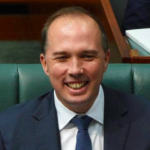Dead Sydney to Become a Sex Capital?

There is little doubt Sydney’s vibrant night life is dying – but will this make way for the spread of other night activities?
Reports of an increase in illegal brothels operating in the Sydney CBD have raised pressure on the NSW Government to overhaul the state’s sex work regulatory scheme.
The Sydney Morning Herald recently uncovered an “underground vice den” operating within the Maestri Towers residential complex on Kent Street, next to Town Hall station. According to its website, ‘Town Hall Massage’ offered “remedial services by angels” from Japan, Korea, China and Taiwan who wear “nice elegant uniforms” and “soft smiles”. However, Towers management, who sent private investigators into the premises, claimed the massage parlour also provided sexual services, starting with a half-hour massage and “happy ending” priced at $90.
The City of Sydney Council served the parlour with a ‘cease use notice’ in January. However, this was allegedly ignored until the Herald investigation published details of the scheme. The parlour has since shut down.
It is just one of dozens of Sydney brothels the Council has been forced to investigate. More recently, it was brought before the Land and Environment Court by the owner of another massage parlour it suspected of operating as an illegal brothel. ‘Central Station Massage’, which advertises the bra sizes of staff on its website, has challenged the ‘cease unauthorised use’ notice served on it by council, demanding it proves the allegations.
Brothel regulation an ‘unnecessary burden’ on local councils
In NSW, local councils are responsible for regulating brothels in their area. Brothels must not only be licensed, but also comply with council planning policies.
These policies differ from council to council. While some use the standard policies they apply for all commercial businesses, others have specific planning policies for sex service premises. Generally, councils can only allow brothels to operate in industrial, and sometimes commercial, zones. In most councils, they are not allowed to operate in residential zones. Brothels found to breach of this conditions are served ‘cease use notices’, asking the business to stop operating within 5-28 days or to lodge an appropriate development application. Businesses that continue to operate can face heavy penalties.
During an inquiry last year, Local Government NSW argued that this model places an “unreasonable burden” on councils. In some cases, they said, councils have spent more than $60,000 trying to close down individual brothels found to be operating outside council policies. Those costs include paying middle-aged men to enter the premises and have sex with prostitutes, in order to prove they were operating unlawfully.
The ‘Town Hall Massage’ revelation comes just four months after the same parliamentary inquiry, launched to find ways of alleviating this burden for councils, recommended the move toward a consistent, state-wide licensing scheme for brothels, along with additional powers for police to enforce it. Although the Government’s response is not due until May, it is expected that the case will add pressure to adopt the inquiry’s recommendations.
Is a licensing scheme really the best idea?
Sex work in NSW became fully decriminalised in 1996, following the exposure of mass police corruption during the Wood Royal Commission. Along with instances of bribery, money laundering, drug trafficking, and fraud, the Commission found evidence of police extorting brothel owners and demanding sex from prostitutes.
Since decriminalisation, the Government’s approach has been to treat sex work like any other licensed business, an approach endorsed by Amnesty International and the United Nations. This has led to NSW having one of the safest sex industry in the world.
According to ‘Sex Work in New South Wales’, a report issued by the Kirby Institute in 2012, “decriminalisation of the NSW sex industry has resulted in improved human rights, netted savings for the criminal justice and health systems, and enhanced surveillance and health promotion programs for sex workers.”
Janelle Fawkes, CEO of the Scarlet Alliance, the national peak body for sex workers, says she’s opposed to the licensing scheme and additional police powers. She fears a move back to the “paperbag days”, when sex workers either had to “hand over a bag filled with money, or provide sex for free” to police officers in return for having their businesses left undisturbed.
There are also fears that the scheme will lead to the spread of largely unregulated and unchecked brothels, where exploitation of sex workers is rife – and may even lead to a rise in the trafficking of sex workers.
Sexual exploitation and illegal brothels
Since the ‘Town Hall Massage’ investigation, further claims have emerged that the brothel had been staffed, almost exclusively, by Asian girls allegedly exploiting the overseas student visa system.
“In many cases, nobody is checking their study, their goals, or if they’re even qualified for the class,” Paul*, told the Sydney Morning Herald: “The same story is unfolding in hundreds of these phoney massage parlours right across Australia and the ‘system’ is damaging these girls for life. It makes you want to cry, literally cry.”
According to a 2012 study published in ‘World Development’, “Countries with legalised prostitution are associated with higher human trafficking inflows than countries where prostitution is prohibited.”
Far from stopping exploitation and trafficking, the study seems to indicate that the decriminalisation of sex work in NSW has entrenched the operation of illegal brothels. However, according to the Kirby Institute, prohibition and policing are no better.
“Jurisdictions that try to ban or license sex work always lose track as most of the industry slides into the shadows. Prostitution laws are the greatest allies of the exploiters.”
It is yet to be seen whether the parliamentary inquiry’s recommendations will be adopted and, if so, whether they will indeed lead to a spread in largely unregulated and unchecked brothels in Sydney and across the state.






